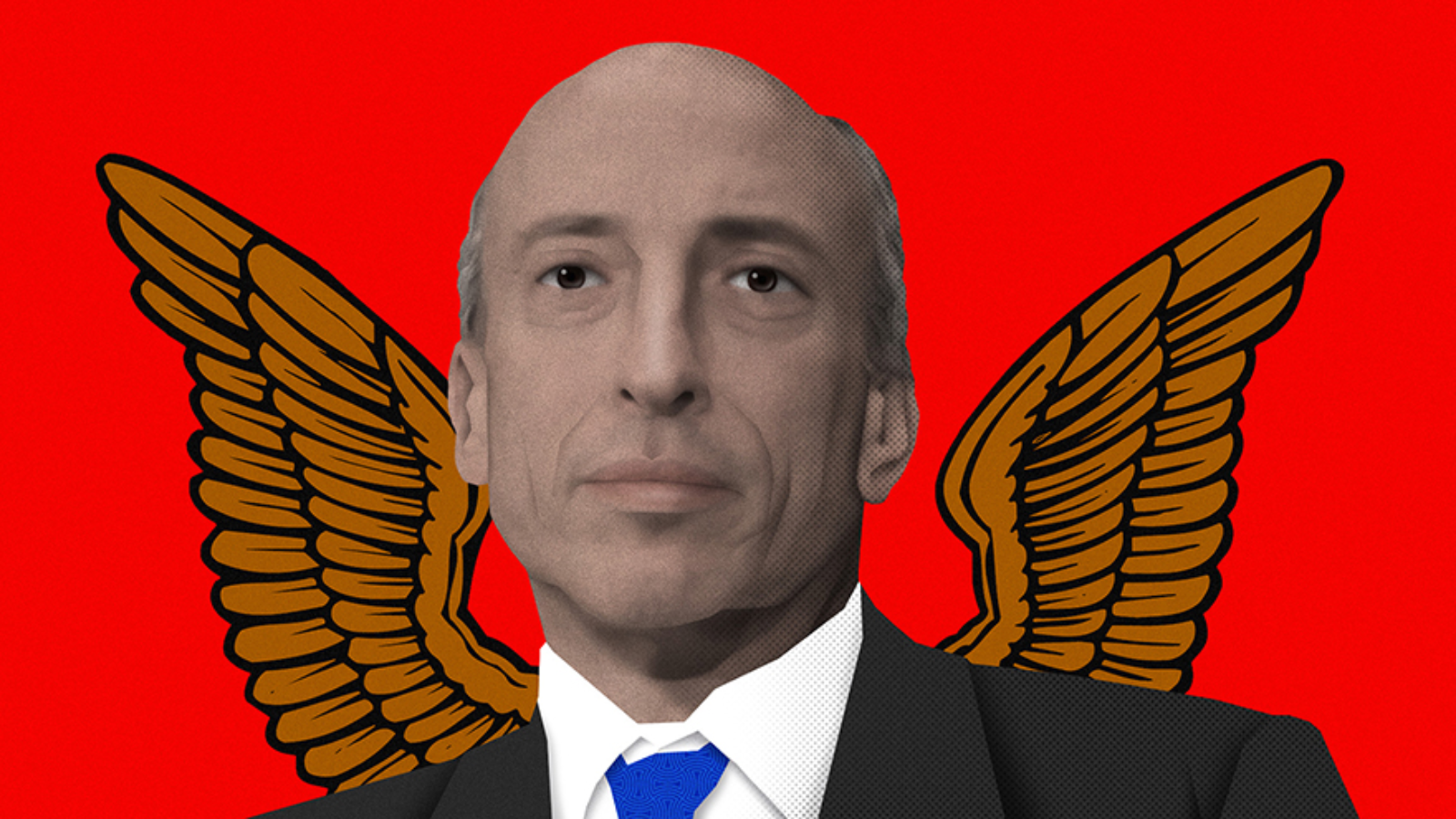US Chamber of Commerce Rips SEC for Denying Proposed Grayscale Bitcoin ETF
Coinbase and Blockchain Association have both filed amicus briefs as the lawsuit against the commission moves forward

Blockworks Exclusive Art by Axel Rangel
- US Chamber of Commerce calls SEC’s actions “freewheeling private policymaking” in Tuesday brief
- Agency’s denial of GBTC’s conversion to ETF “makes little sense” when considering SEC approved a spot palladium ETP, Blockchain Association says
The largest lobbying group in the US is backing Grayscale Investments’ lawsuit against the SEC, which claims the agency unfairly disapproved the proposed conversion of the firm’s bitcoin trust (GBTC) to an ETF.
US Chamber of Commerce lawyers wrote in an amicus brief filed Tuesday that the SEC’s decision to deny Grayscale’s planned fund reflects “a paternalistic belief that the agency knows better than investors.” The organization, which claims to directly represent 300,000 members, added that the agency’s policy decisions often “depart drastically” from SEC precedent.
“This approach has enabled the commission to pick winners and losers without having to account for its reasoning to the interested public or to the courts, thereby depriving investors of the freedom to make their own investment choices and businesses of the certainty they need to innovate and meet investor demand,” the brief states.
Hours after the SEC rejected Grayscale’s application in June to morph its flagship product into an ETF, the company asked the US Court of Appeals for the District of Columbia Circuit to review the decision.
The amicus brief filed by the US Chamber of Commerce, as well as other briefs by crypto exchange Coinbase and the Blockchain Association, come after Grayscale filed its opening brief in the suit last week.
The 100-page document claims that the regulator is making an “arbitrary and capricious” action as defined by the Administrative Procedure Act (APA). It points out the SEC’s approval of ETFs holding bitcoin futures contracts — the price of which, Grayscale says, is subject to identical risk of fraud and manipulation as the spot price of bitcoin.
Dave Nadig, a financial futurist at VettaFi, previously told Blockworks that the case would be a tough one for Grayscale to win, adding that the SEC’s Congress-approved mandate gives the agency “extremely clear authority” to regulate rule-making about the activities of securities exchanges.
“The APA undoubtedly affords administrative agencies leeway when making policy judgments entrusted to them by Congress,” the US Chamber of Commerce wrote in the Tuesday brief. “But the APA does not give an agency a blank check to make decisions that affect large sectors of the economy through orders that ignore statutory mandates, draw arbitrary distinctions and rest on broadly applicable policy judgments made in the shadows.”
Coinbase, Blockchain Association double down on support for Grayscale
Coinbase argued in its brief, filed Tuesday, that the spot market for bitcoin is larger and more stable than the bitcoin futures market and other commodity markets for which spot ETPs have been approved.
It added that crypto exchanges such as Coinbase have robust self-surveillance and monitoring practices that prevent manipulation and fraud.
Not approving a spot bitcoin ETF “needlessly hampers innovation, causing the US to fall behind well-regulated markets around the globe that have already adopted such products,” Coinbase wrote.
Lobbying group Blockchain Association said in its brief that aside from the commission’s different treatment between bitcoin futures and spot bitcoin ETPs, the SEC’s decision “makes little sense” when considering it approved the Aberdeen Standard Palladium Trust ETP.
Bitcoin and palladium share a similar market capitalization and each traditionally have high price volatility, the group argued.
Blockchain Association Policy Counsel Marisa Tashman Coppel told Blockworks that Grayscale’s lawsuit against the SEC is difficult to predict, noting that there are no court cases directly dealing with this point.
“If the court does not rule in favor of Grayscale, investors will continue to be limited in how they may gain exposure to bitcoin, and the SEC will continue on with its pattern of inappropriately discriminating between investment products rather than ensuring investors can choose a product that meets their goals and evaluate the risks of such product through the various SEC-mandated disclosure requirements,” she said.
An SEC spokesperson declined to comment.
The agency is scheduled to offer a response to the filed briefs by Nov. 9.
Get the news in your inbox. Explore Blockworks newsletters:
- The Breakdown: Decoding crypto and the markets. Daily.
- 0xResearch: Alpha in your inbox. Think like an analyst.






